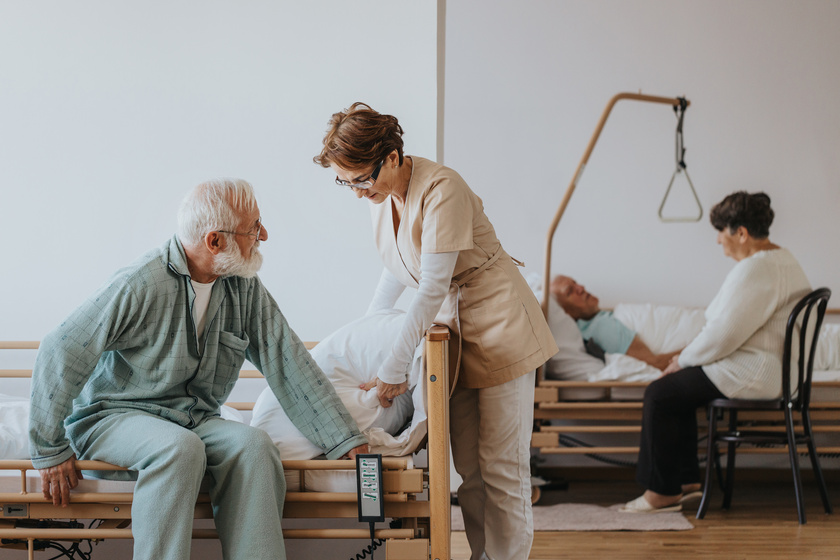Parkinson’s disease is a chronic and degenerative disorder of the central nervous system. It’s caused by the death of brain cells that produce dopamine, a chemical messenger that helps regulate body movements. The disease develops gradually, starting with mild symptoms and progressing to more severe problems. Although there is no cure for Parkinson’s disease, early diagnosis and treatment can improve symptoms and help people live longer with their condition. One way to do this is by working with memory care in Westwego, LA to improve your ability to remember things and function at home independently. Here’s how:
Using Devices And Technology That Assist With Daily Living
You may have heard that using devices and technology to assist with daily living is a great way to help with Parkinson’s disease. Whether it’s a smartwatch, mobile phone, or tablet, there are many ways that your loved one in memory care in Westwego, LA, can use these tools to make life easier for them.
It’s important that you carefully consider the specific needs of your loved one when choosing which device will work best for them. They will need something that fits their lifestyle and abilities. For example, if you choose a tablet, this might not be ideal for someone who struggles with fine motor skills or needs help seeing clearly because they have cataracts or macular degeneration (the most common cause of vision loss in American adults).
If your loved one is having difficulty remembering appointments or what time they should take their medicine at night, then having an electronic calendar may help them remember important information more easily. They could also use an app on their smartphone to remind themselves when it’s time for certain daily activities, like brushing their teeth before bedtime!
Creating A Routine For The Patient
A routine can make the patient’s life more predictable and less frustrating. This is particularly important for patients who have lost the ability to plan ahead, organize their thoughts, or remember which day it is.
Routines should be simple enough that they don’t take a lot of memory or concentration. For example, “Every morning after breakfast I will walk around my neighborhood” is a good routine because it’s easy to remember, but “I will walk down Broadway with my dog every morning at 7:30AM” may be too complicated for some patients.
It’s also important that the patient enjoys doing whatever activity you pick for them—if not, then they’ll become discouraged when they can’t remember how to do it or if they have trouble getting out the door on time.
Taking The Right Medications And The Right Times
Medications can be taken in a variety of ways. Some patients take their medications once in the morning, while others take them twice or even three times per day.
Memory care providers work with caregivers to determine which medication schedule works best for each individual patient’s needs and preferences. They also make sure that caregivers are aware of all the necessary instructions related to taking medications at home. For example, if your loved one has trouble swallowing pills and capsules due to Parkinson’s symptoms, his doctor may prescribe liquid forms of certain drugs instead—making it easier for him or her to take them consistently throughout the day without much hassle!
Eating A Healthy Diet
Eating a healthy diet is important for people with Parkinson’s disease. The goal is to eat a balanced diet and get the right nutrients to stay healthy, and avoid some common problems that come with PD, like constipation, dizziness, fatigue, and depression.
Conclusion
It is important for you to understand that Parkinson’s disease does not have to be a major obstacle in the life of your loved one. With proper care, medications, and services available today, those affected by this condition can live comfortably and even enjoy many activities they used to do before their diagnosis.







